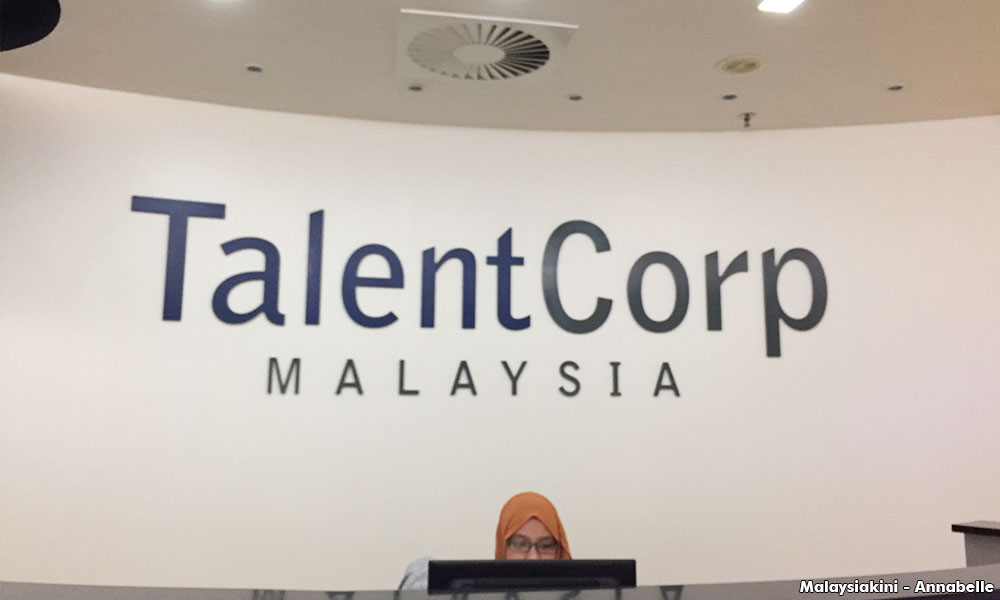It has been a staple of Malaysian journalism, through the years, to carry stories of Malaysians who have made good in the sciences, creative arts, education, sports, etc, in other parts of the world.
The tone of the reports is, as expected, laudatory, with details of the achievement and the connection to their Malaysian background. It is right to give recognition to Malaysians who have distinguished themselves but there is a sour reek of a desperate need to bask in reflected glory.
This is because, in many of the cases, the individuals had transplanted themselves long ago to another country and had grown roots there for decades, raising a family, and/or working at a career.
Many were children when they left this country for a better education. Adults left because they felt more valued, personally and professionally, in another country.
Sure, ask them the stock question about what they miss most about Malaysia and you will get stock answers about missing the food, this assam laksa, and that ayam percik. And there will be diplomatic answers about loving the mix of cultures and races living in harmony.
That last belief is easily shown when, maybe once or twice a year, they come back to Malaysia to attend a wedding, an anniversary milestone of an age-old patriarch or matriarch, or a funeral.
But face it, they carry a different passport, they vote elsewhere for different political leaders, they have long flown the nest. Malaysia has had nothing to do with their lives since, except for lingering pangs of nostalgia.
The past week saw a few stories about former Malaysians who have made good in other parts of the world. There is Jocelyn Yow, the 25-year-old of Malaysian Chinese-Vietnamese descent who is set to become a mayor, and the youngest woman from a minority race at that, of a town in California.
Yow's father travelled to the US for his studies in the 1980s, where he met her mother, who was from a family of Vietnamese refugees. Soon after her birth, Yow was in Malaysia as her paternal grandfather had developed cancer. Her childhood, 15 years of it, was spent in Alor Setar, Kedah.

While she was most recently here two years ago, she has a young family and a new job now. So, one can expect her to be absent from these shores for quite some time.
There were also reports of Penang teenager Celine Chung training with the U-17 Bayern Munich women’s football team, 60-year-old Sam Lim, formerly from Muar, who had been named policeman of the year in Western Australia, and K Gurunathan who was re-elected mayor of Kapiti Coast in New Zealand.
It was evident from the largely negative response in social media that the news was not seen as a reflection of "Malaysia Boleh", but further proof of the brain drain of talent being driven away by educational and economic barriers here, and drawn elsewhere to a promise of advancement and success based on individual quality and not communal prejudice.
There were the usual idiots who chortled moronic delight that the country was rid of a few pendatangs (immigrants). Can’t expect better from people who are clueless about most things, and certainly clueless about the cost to the country of compelling hardworking, gifted people to become “pen-pergis” (leave-igrants).
What’s there to keep talented Malaysians rooted here? You, the readers, can easily draw up a seemingly interminable list of what’s wrong with this country.
What’s there to attract Malaysian professionals overseas to return to their homeland to contribute their expertise and experience?
Bringing them home
Not much, judging by the 2019 Auditor-General’s (AG) Report on TalentCorp, the agency tasked with persuading highly-qualified Malaysians to come home. For the years 2017, 2018, and 2019, TalentCorp, in its Returning Expert Programme (REP), succeeded in luring back 272, 309, and 276 Malaysians respectively.
The target had been to bring back 400 Malaysians in 2017, 400 in 2018, and 1,000 in 2019.
In response, TalentCorp said that the drop in their 2019 key performance index was because the new board of directors decided to focus on good governance matters. Which begs the question: what was the previous board of directors focused on?

While TalentCorp’s aspiration of making Malaysia a top-20 destination in the Global Talent Competitive Index was not realised, the AG noted that Malaysia had improved its standing from 37th in 2013 to 26th this year.
The AG also said that the returnees of the REP from 2016 to 2019 would contribute an estimated RM93.91 million to the country’s earnings over a span of five years, positively concluding: “This analysis shows that the return of Malaysian experts has a positive effect on the country.”
A bit over-enthusiastic in the assessment, I think. A contribution of RM93.91 million over five years, measured against one year’s GDP of over US$300 billion (even in this Covid-semi-paralysed year)?
The weight of the RM93 million is further diminished, if one factors in a deduction of the cost of the 11 outreach programmes to six countries to lure 857 Malaysians home.
Well, Malaysia has been my home for seven decades. I had stifled an incipient thought of going to the States to do my Masters, and have made my bed here ever since without ever feeling a travel itch asking to be scratched.
But in dark times like now, when the failings of this country are starkly shown, my country resembles that evoked by Joseph Heller in “Catch-22”: “A country is a piece of land surrounded on all sides by boundaries, usually unnatural.”
THOR KAH HOONG is a veteran journalist. - Mkini
The views expressed here are those of the author/contributor and do not necessarily represent the views of MMKtT.




No comments:
Post a Comment
Note: Only a member of this blog may post a comment.